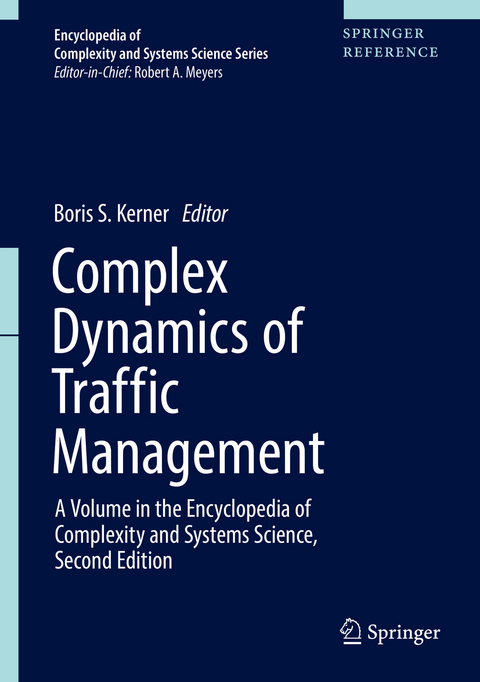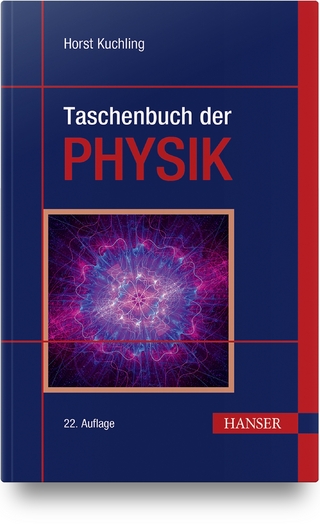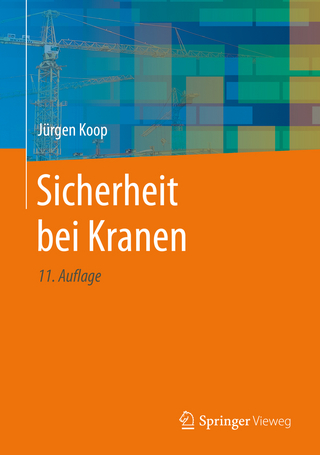
Complex Dynamics of Traffic Management
Springer-Verlag New York Inc.
978-1-4939-8762-7 (ISBN)
Boris Kerner was born in Moscow in 1947 and graduated from the Moscow Technical University MIREA in 1972. Boris Kerner received his Ph.D. and Sc. D. (Doctor of Sciences) from the Academy of Sciences of the Soviet Union, respectively, in 1979 and 1986. Between 1972 and 1992, his major interests include the physics of semiconductors, plasma, and solid-state physics as well as the development of a theory of autosolitons – solitary intrinsic states, which form in a broad class of physical, chemical, and biological dissipative systems. Since 1992 Boris Kerner worked for the Daimler Company in Stuttgart, Germany. His major interest since then was the understanding of vehicular traffic. The empirical nucleation nature of traffic breakdown at highway understood by Boris Kerner is the basis for three phase traffic theory, which he introduced and developed in 1996–2002. Between 2000 and 2013, Boris Kerner was Head of a scientific research field Traffic at the Daimler Company in Stuttgart (Germany). In 2011, Boris Kerner was awarded with the degree Professor at the University of Duisburg-Essen in Germany. After his retirement from the Daimler Company on January 31, 2013, Prof. Kerner works at the University of Duisburg-Essen. Boris Kerner is the author of more than 250 scientific works and patents as well as four books that are devoted to a variety of physical systems, complex dynamics of traffic flow in traffic and transportation networks, applications of diverse intelligent transportation systems for traffic prognosis, traffic control, dynamic traffic assignment, as well as a study of autonomous and connected vehicles in mixed traffic flow.
Complex Dynamics of Traffic Management, Introduction to.- I - Traffic breakdown and spatiotemporal features of traffic congestion in traffic networks.- Traffic Breakdown, Probabilistic Theory of.- Traffic Congestion, Modeling Approaches to.- Traffic Congestion, Spatiotemporal Features of.- Traffic Prediction of Congested Patterns.- Microscopic Traffic Flow Models: Stochastic Models in Framework of Three-Phase Theory.- Traffic Flow Theory: The Reason for Paradigm Shift.- II - Challenges for traffic control and Optimization in traffic and transportation networks.- Self-Driving: Challenges for Cooperative and Automatic Driving in Vehicular Traffic.- Complex Dynamics of Bus, Tram and Elevator Delays in Transportation Systems.- Freeway Traffic Management and Control.- Traffic Networks: Dynamic Traffic Assignment and Control Based on Breakdown Minimization (BM) Principle.- Traffic Networks: Deterioration of Traffic System through the Use of classical Wardrop’s Equilibria.- Travel Behavior and Demand Analysis and Prediction.- III - Pedestrian traffic and evacuation dynamics.- Pedestrian, Crowd and Evacuation Dynamics.- Evacuation Dynamics: Empirical Results, Modeling and Applications.- Natural Disasters and Evacuations as a Communication and Social Phenomenon.- IV - Air traffic.- Air Traffic Control, Complex Dynamics of.
| Erscheinungsdatum | 03.07.2019 |
|---|---|
| Reihe/Serie | Complex Dynamics of Traffic Management | Encyclopedia of Complexity and Systems Science Series |
| Zusatzinfo | 137 Illustrations, color; 288 Illustrations, black and white; XX, 763 p. 425 illus., 137 illus. in color. |
| Verlagsort | New York |
| Sprache | englisch |
| Maße | 178 x 254 mm |
| Themenwelt | Naturwissenschaften ► Physik / Astronomie |
| Sozialwissenschaften ► Soziologie | |
| Technik ► Bauwesen | |
| Schlagworte | Dynamic control and optimization of traffic networks • Effect of self-driving vehicles on traffic • Pedestrian, Crowd and Evacuation Dynamics • Stochastic highway capacity • Traffic breakdown and congestion in traffic networks |
| ISBN-10 | 1-4939-8762-3 / 1493987623 |
| ISBN-13 | 978-1-4939-8762-7 / 9781493987627 |
| Zustand | Neuware |
| Informationen gemäß Produktsicherheitsverordnung (GPSR) | |
| Haben Sie eine Frage zum Produkt? |
aus dem Bereich


